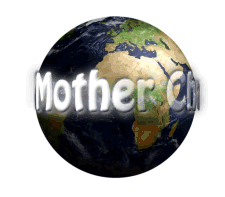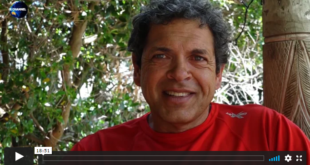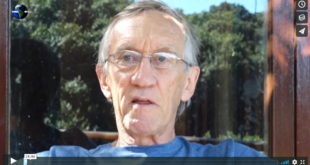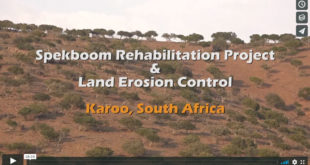AT COP 22, Marrakech, Mother Channel interviews Ms Karina Larsen, Knowledge and Communications Manager at Climate Technology Centre and Network (CTC-N) and Jaco du Toit, Manager: Corporate Engagement of WWF – SA.
Ms Karina Larsen of Climate Technology Centre and Network (CTC-N) ~ the Centre promotes the accelerated transfer of environmentally sound technologies for low carbon and climate resilient development at the request of developing countries stakeholders.
In providing technology solutions, capacity building and advice on policy, legal and regulatory frameworks, we draw on the expertise of global research, civil society, and private sector organisations, as well as the decades of experience offered by our co-hosts UN Environment and the United Nations Industrial Development Organisation to design and deliver tailored technical assistance to the needs of individual countries.
The CTC-N has only been in existence for about 3 years now, created by the parties that participate at the COPS and have since been expanding into all regions globally, and definitely making progress, as we have now processed approximately 160 requests for technical assistance from nearly 60 countries, and are at the moment receiving more than two requests per week, and have implemented technical assistance that will support countries’ adaptation and mitigation commitments as pledged in their Nationally Determined Contributions, this includes helping to create linkages and build capacity to access necessary financing.
The Centers Knowledge Portal, (www.ctc-n.org), serves as a gateway to the CTC-N’s technical assistance and capacity building services, which users to the site can access for learning opportunities and information on outcomes of CTC-N technology transfer activities. There is a wealth of useful climate technology information produced by the Consortium and Network partners, and in recognition, the Centre also provides greater visibility to this broad array of information on the portal, organised by country and sector and searchable via keywords.
CTC-N Webinars provide interactive presentations on technology topics such as agriculture, gender and technology, transportation, waste management, and water issues, which highlight technology opportunities and barriers, and offer concrete examples of successful policies and tools that can be replicated in other regions. (Webinars are free to the public)
One of the principles we were founded on was to be ‘demand-driven’ – countries are putting strategies in place, making commitments, etc., they already know what the priorities are, but we ask them to come to us and tell us what their priorities and challenges are in the process – it’s important to not be prescriptive, but to try to facilitate the process.
Jaco Du Toit of World Wildlife Fund – SA talks on current and future challenges and targets for the WWF globally.
The biggest challenge of the COP 21 2015 Paris Agreement is that we don’t actually have enough efforts on the table to achieve the goals that were set out in the agreement.
At the moment we are still heading for 3-degree warming, even though the agreement sets out a goal of 2 degrees, striving for 1.5 degrees. Our biggest objective here is to work with countries and even increasingly with non-state actors to get them to do more, the process to work faster, so we actually reduce emissions in line with what the climate science tells us is required.
We have offices globally and engage with governments, having built up relationships through domestic work and through the process here at COP, we have technical credibility – meeting with governments to address challenges, provide solutions, accelerated decision-making, including working externally, e.g. on science-based targets.
We work with businesses to set targets in line with reducing emissions for a 2-degree world, as well as cities and others. The idea is to create an environment where governments can also no longer say, viz; ‘Well, we cannot do more’! because those actors who are moving forward within the framework of global warming actions can be referenced as examples to those who are hesitating or unwilling to progress.
Beyond country targets, there are two items that are really critical for our focus, i.e.
* Facilitative Dialogue 2018 – countries will have a dialogue on the level of effort – it has to be a robust process that leads to countries increasing their targets, not another talk shop.
* ‘Urgent Action’ by state and non-state actors.
In terms of there being a future – Yes, of course, the human race has proven to be very resilient, but it’s a question of what kind of future do we want to leave for our children? We are exhausting the resources of this planet very quickly, and in a world with an expected increase of temperature between 2-4 degrees in next 10-14 years, which no human has ever experienced – that is going to be a very scary place to try and live in and survive!
Links:
WWF (SA) Jaco Du Toit (Climate Change)
CTCN Karina Larsen ~ Climate Technology Solutions
 Mother Channel Environmental, climate change news and media.
Mother Channel Environmental, climate change news and media.



